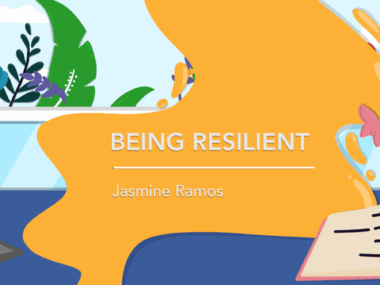Addressing 5 common misconceptions about disabilities
Let's build a greater understanding of SMA this awareness month
Written by |

As those of us with spinal muscular atrophy (SMA) know all too well, people with disabilities often face a slew of assumptions and misconceptions.
To improve awareness and understanding, I want to address five of the most prevalent myths I’ve encountered, especially as I’ve become more visible and engaged in my community in recent years. In discussing the following misunderstandings, I aim to offer a clearer perspective on the realities of living with a disability.
1. Because I’ve had a tracheostomy and have SMA type 1, one of the most severe forms of the condition, many people assume I can’t talk, eat, or drink orally. However, I’m one of the rare individuals with this SMA type who still can do all of these things. That brings me immense joy, especially because the activities are often social. These abilities are fundamental to my existence.
2. People often see my physical limitations and assume I cannot perform specific tasks or achieve my goals. This misconception is particularly frustrating, as it means I frequently need to demonstrate my abilities and prove myself and my worth. Moreover, I often need to explain how I accomplish certain tasks, such as by using support services and assistive technology.
3. My small stature and youthful appearance often cause people to perceive me as much younger than I am. Despite being a 29-year-old woman with significant maturity, I’m frequently treated and spoken to as if I were a child. That’s especially noticeable in restaurants, where waitstaff sometimes express concern when I order an alcoholic beverage. They often look at my mother with uncertainty, but when she offers to show my ID, they quickly respond, “That won’t be necessary.”
4. Although I can thrive socially in environments where I feel comfortable and accepted, I also experience moments of shyness that make it challenging to connect with others, especially those who don’t have a disability. Building friendships can be complicated because of the prevalent fear or misunderstanding about how to interact with disabled individuals, often stemming from a lack of exposure to the disability community. As a result, nondisabled people may view me more as an acquaintance than a friend, seeing my physical limitations as a barrier to forming a genuine, regular friendship.
5. I’m generally optimistic and resilient, but I still face challenges and hardships like anyone else. Living with a progressive condition can be incredibly draining and sometimes leaves me feeling overwhelmed. Chronic fatigue and pain, which are part of my condition, can affect my productivity and well-being on several levels. Additionally, I contend with anxiety and depression alongside my primary disability. Though I appreciate being praised for my strength and capability, I also need grace, compassion, and empathy to navigate these struggles.
August is SMA Awareness Month, a perfect time to reflect on and challenge the myths surrounding this condition. By shedding light on these issues and sharing personal experiences, I hope to foster a deeper understanding and more meaningful connections within the disability community. As we work to break down barriers and enhance empathy, let’s remember that proper awareness goes beyond acknowledging a condition; it involves embracing the diverse realities and voices of those who live with it daily.
Note: SMA News Today is strictly a news and information website about the disease. It does not provide medical advice, diagnosis, or treatment. This content is not intended to be a substitute for professional medical advice, diagnosis, or treatment. Always seek the advice of your physician or other qualified health provider with any questions you may have regarding a medical condition. Never disregard professional medical advice or delay in seeking it because of something you have read on this website. The opinions expressed in this column are not those of SMA News Today or its parent company, Bionews, and are intended to spark discussion about issues pertaining to spinal muscular atrophy.





Leave a comment
Fill in the required fields to post. Your email address will not be published.